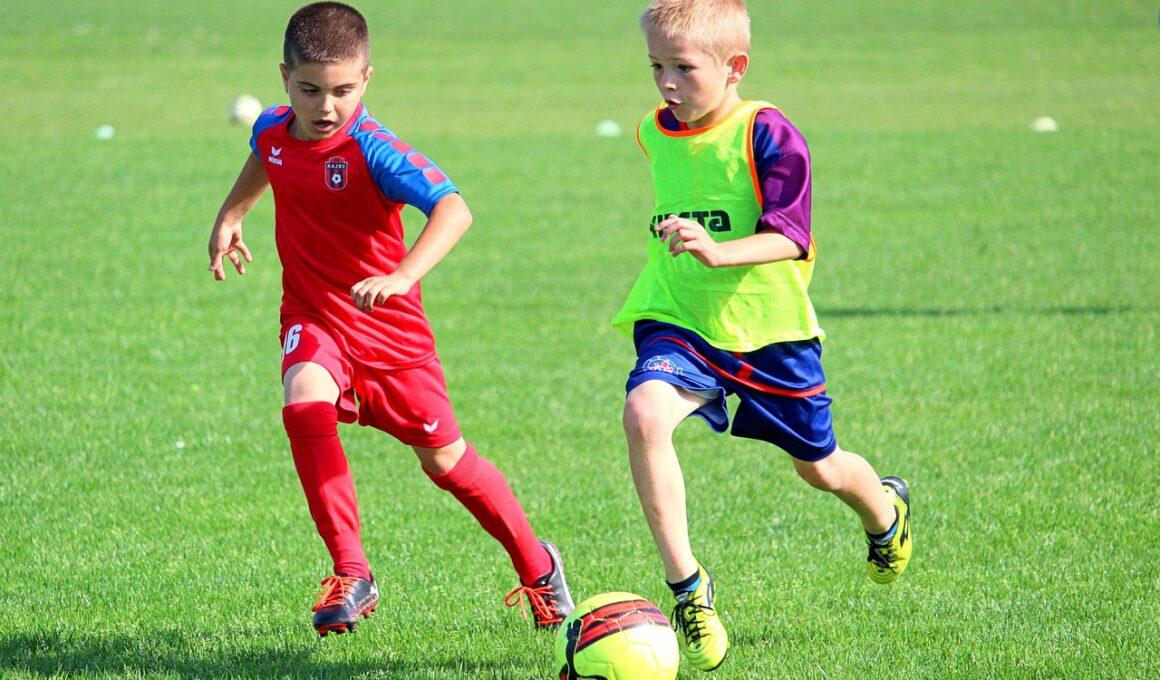The Role of Fans and Media in Upholding Sports Ethics
In the domain of sports, the roles of fans and media are crucial in sustaining ethics and promoting fair play. The enthusiastic engagement of fans can influence players and organizations, creating an environment where ethical behavior thrives. Fans who demand integrity in sports send a clear message that unethical conduct, such as cheating or doping, will not be tolerated. The rise of social media platforms has amplified the voices of fans, allowing them to hold players and teams accountable for their actions. Merchandising, ticket sales, and ratings are closely tied to the public’s perception of fairness in sports. Consequently, fans can leverage their collective power to prioritize ethical standards. As consumers of sports, their expectations shape the culture of sports associations. When fans rally against violations of ethics, it creates a ripple effect that compels teams and athletes to reassess their behaviors. This dynamic not only promotes ethical play among athletes but also influences broader sports governance. Ultimately, the relationship between fans, media, and sports ethics is a complex yet powerful force that shapes the future of fair play in sporting events everywhere.
The Media’s Influence on Sports Ethics
The media plays an indispensable role in upholding sports ethics, as it serves as the primary conduit through which information is disseminated. Investigative journalism sheds light on unethical practices, ensuring transparency within sports organizations. Articles, broadcasts, and online reporting reveal instances where players or teams have engaged in behavior not aligned with ethical standards. This vigilance fosters an environment where stakeholders feel motivated to act responsibly. Moreover, multi-platform coverage of games allows for scrutinizing players, referees, and coaching decisions in real-time. Such scrutiny can deter unethical behavior through public exposure and consequences. The importance of media in reporting not just the outcomes, but also the ethics of the game cannot be overstated. Media outlets also facilitate dialogue around important ethical issues in sports, such as the use of performance-enhancing drugs and player misconduct. By highlighting these topics, they encourage informed discussions. Furthermore, ethical reporting can influence fan behavior and expectations, creating a more robust culture of fair play. In essence, the media acts as a guardian of ethics, striving to cultivate integrity and sportsmanship, fostering respect among all participants.
The integration of social media into sports has transformed the ethical landscape significantly. Fans utilize platforms like Twitter and Instagram to amplify their opinions and call for accountability, challenging unethical practices effectively. This unprecedented access to communication has empowered fans, making them stakeholders in the ethical scrutiny of their favorite sports. For instance, viral campaigns can expose instances of cheating or misconduct, leading to immediate consequences for players involved. As such, social media serves not just as a platform for celebration, but also as a mechanism for upholding ethical behavior. Fan engagement through social networks fosters collective action that resonates throughout sports communities. Athletes, aware of their visibility and influence online, are more likely to maintain ethical standards. This heightened awareness creates a direct correlation between fan engagement and ethical behavior. Moreover, organizations must adapt to this new landscape, creating policies that align with fans’ expectations for integrity. The bidirectional communication channels established by social media provide both accountability and feedback, guiding not only policies but also the overall culture surrounding sports. These interactions underscore the vital role of fans in shaping sporting ethics and maintaining fairness in competitive environments.
Consequences of Violating Sports Ethics
Violating sports ethics has immediate and far-reaching consequences for athletes and organizations alike. The repercussions of unethical behavior can range from suspension and fines to irreparable damage to reputation. Athletes caught engaging in misconduct or manipulating outcomes face severe penalties that can end their careers. Organizations risk losing sponsorships and fan trust when they ignore or condone unethical conduct. Moreover, ethical violations undermine the integrity of the sport itself, leading to decreased fan engagement. This fallout includes loss of viewership, which directly affects revenue. When fans perceive a sport as tainted by unethical practices, their enthusiasm diminishes, leading to lower attendance at games and reduced merchandise sales. The role of social responsibility becomes evident; organizations must prioritize ethics to maintain the goodwill of fans and sustain their business. Ultimately, a commitment to fair play fosters a healthier and more exciting competitive landscape. Upholding integrity ensures that sporting events are not only entertaining but also respectful of the values that define the spirit of competition. Thus, the consequences of failing to adhere to ethical standards emphasize the need for a collaborative commitment to integrity in sports.
In sports, the collaborative role of fans and media in ethical enforcement leads to a proactive cultural shift. Both groups form a powerful alliance, advocating for transparency and ethical conduct through their collective influence. This relationship fosters an environment where players feel compelled to perform not just well, but ethically. The presence of eager fans creates pressure, encouraging them to adhere to fairness during competition. Similarly, media coverage serves as both a check and a platform for praising ethical behavior. With public opinion at stake, athletes are increasingly aware that their actions reflect on their teams and the larger sporting community. By omitting glorification of unethical play in media narratives, journalists can shape public perception positively. Consistently highlighting exemplary sportsmanship sets standards for behavior that fans can emulate and expect from their idols. Through this cooperative dynamics, sports can gradually reshape narratives around fairness, showcasing ethical triumphs over defeats. Therefore, the concerted efforts of fans and media not only enhance accountability but also promote a collective culture of fair play. The alignment of priorities between fans, media, and athletes is indispensable for fostering the healthy integrity of sports competition.
Empowering Future Generations
The role of fans and media extends beyond current events, impacting future generations as well. Educating young fans about the importance of ethics in sports requires collaboration between sports organizations, media, and community leaders. Youth programs must emphasize the principles of fair play and integrity to cultivate a culture that values ethical behavior from the outset. Initiatives could include workshops, mentorship programs, and campaigns led by well-known athletes advocating for ethics. Media plays a critical role in amplifying these messages, showcasing stories of integrity in sports. By highlighting positive examples, role models emerge for young athletes who look up to established players. This process fosters a mindset where ethical behavior is not just an expectation but a fundamental component of the sporting experience. Likewise, youth engagement through social media can enhance the emphasis on fairness. When young fans participate in dialogues about ethics, it enriches their understanding and commitment to maintaining integrity. In these ways, the alliance between fans, media, and organizations becomes a bedrock for nurturing responsible sportsmanship, making it essential to empower future generations to prioritize ethics in sports.
In conclusion, the interconnectivity between fans, media, and ethical standards forms the backbone of sports culture. Each stakeholder plays a pivotal role in advocating for integrity, framing a narrative that emphasizes fair play over victories tainted by unethical behavior. Through their collective voices, fans can influence change while the media can shine a spotlight on ethical practices, creating a virtuous cycle. Together, they foster an atmosphere where the health of sports is sustained through accountable actions. Sports organizations must recognize this dynamic and embrace the collaborative spirit that fans and media represent. Fostering partnerships with fans helps build a more engaged community that champions integrity. Ultimately, the coexistence of fans and media in promoting ethical behavior creates lasting impacts on both current and future sporting landscapes. The goal remains clear: to develop a culture that prioritizes ethics alongside the competitive spirit. This aspiration is not merely an objective; it is a crucial aspect of the responsibility shared by all in the sports community. Collectively, they must champion values that transcend the game, ensuring that sports continue to inspire ethical excellence and fair play worldwide.
This collaborative effort enhances not only sportsmanship but dignity within competitive realms. Ethical behavior inspires trust and respect, guiding the journey through the various challenges athletes face. By upholding these principles, all involved contribute to a sporting ethos that reflects fairness, respect, and integrity. The necessity of maintaining high ethical standards reinforces the idea that sports aren’t just contests but a reflection of society’s values. As stakeholders work together, the path becomes clearer towards achieving long-lasting changes that uplift sports integrity. Together, fans, media, and athletes can establish a legacy that celebrates the essence of fair play.


